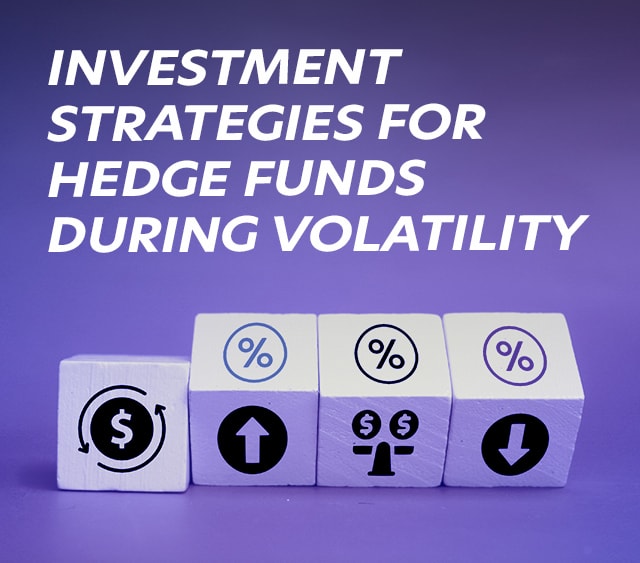6 big challenges for hedge funds in 2022
The world’s a pretty complicated place right now. We’re facing a pandemic, the rise of populism and undermining of democratic institutions, energy and living cost crises, and now war in Europe.
These are huge issues with wide-ranging impacts, affecting seemingly all industries. Hedge funds are no exception, and the teams behind startup and established funds alike are up against significant challenges in 2022.
What are these challenges, and how can hedge fund managers respond? Let’s find out.
Hedge funds: what’s in a name?
First of all, let’s face it, the name’s a bit of a misnomer. Investors still use them to diversify and hedge other areas of their portfolios, but hedge funds today are known best for offering higher return and higher risk alternative investments.
Even before you factor in the latest megatrends like the ones in our list below, investors are mindful that hedge funds tend to offer niche opportunities, and their portfolios can be concentrated on one particular asset profile, meaning they can offer little in the way of risk diversification.
Of course, some hedge funds are riskier than others, whether through excessively leveraged investments, lack of diversification, or lack of protection for invested capital.
But it doesn’t have to be that way. Fund managers have faced all these risks for many years and have a number of mitigation strategies at their disposal to counter them, including:
- Secure structures
- Trusted management teams
- Risk management frameworks
- External oversight
So, the question is: can they rise to new challenges and develop new strategies to mitigate the new risks?
Challenge 1: Exogenous shocks
Over the last six or so years, it seems exogenous shocks are coming thicker and faster. While some hedge funds will look to exploit opportunities directly related to these shocks, the broader challenge for them is how to adapt to each new normal and develop attractive investment propositions.
For instance, Russia’s war against Ukraine may see investors seek shelter in more secure investments. Still, with commodities such as oil and gas so heavily impacted and offering a highly unpredictable and treacherous trading environment, many will likely seek out the benefits of risk diversification through investments across various types of funds and asset classes.
Marketing the benefits of their investment strategies in the current context is, then, a key challenge for hedge funds. Those with robust risk management and a clear proposition for prospective investors about risk-mitigating factors seem certain to do better than those that fail to do so.
Challenge 2: Technology
One of the current megatrends is of course rapid technological progress. No hedge fund – or any financial services player – can afford to ignore it. And that is the risk: getting left behind and being unable to pass the benefits of technology on to investors.
On the one hand, there are new technology-led investments such as cryptocurrencies. On the other, there are new technology-based solutions for every aspect of trading and fund management.
So many apps, platforms, and tools are being developed, and hedge funds have many possibilities to digitize, improve, and scale their offering. From data platforms to automation tools, and full-blown algorithmic logic coupled with machine learning, these applications can cut down on admin, improve accuracy, and even help with forecasting.
In the 2021 Alternative Investment Management Association (AIMA) and KPMG report Global hedge fund industry: Accelerating out of the pandemic, Paul Pisani, KPMG USA’s senior director of alternative investments, says: “With the complexity of regulatory requirements and in-house fund operation costs, the reliance on outsourced technology platforms has created a proven and effective operations model for hedge funds around the globe.”
Based on a survey of hedge fund managers around the world, the report reveals that, when it comes to middle and back-office technology, hedge funds prioritize everything from data management and cybersecurity solutions to cloud services and compliance technology.
For front-office technology, funds are prioritizing investment in alternative data and infrastructures, expanding their research tools, risk management tools, outsourced trading technology, and using tax and financing technology in investment decisions.
Challenge 3: Environmental, social, and governance (ESG)
According to Morningstar, global sustainable fund assets were worth around USD 2.74 trillion at the end of December 2021, with some USD 142 billion in investments being added in Q4 2021 alone.
More and more investors are looking for opportunities with a positive ESG impact. Demand has been on the up for ESG investments for many years, but now the landscape has become that much more competitive, and funds are looking to offer better returns as well as a positive impact.
Funds should consider the impact of their investments and look for ESG opportunities to cater to this demand, and, crucially, keep on top of the evolving disclosure requirements for ESG status.
Challenge 4: Diversity, equity, and inclusion (DE&I)
Similar to ESG, DE&I represents not only societal progress, but a shift in investor demand. Growing awareness of inequality and an influx of Gen Y and Gen Z retail investors means there’s a burgeoning appetite for investments that uphold and support these values.
Whether by ensuring equality and diversity in fund management teams or choosing partners and investments that embody similar values, policies, and track records, forward-thinking funds will be taking steps to stay ahead of the curve.
Challenge 5: Regulations and transparency
As hedge funds are private entities, usually limited partnerships or other special vehicles, and often domiciled in jurisdictions regarded as having more streamlined regulatory environments, the onus is on fund managers to demonstrate their credibility. They can do this through transparency and adherence to the spirit of robust regulation.
In the absence of credible leadership, responsible governance, and waterproof KYC and risk management procedures, hedge funds can seem risky and vulnerable to fraudulent activities, money laundering, and tax evasion.
Fund managers should continue to expect a trend towards increased transparency and regulation, with more rigorous checks related to leverage risk, unbiased valuations, ESG reporting, investment risk, and the accurate communication of returns.
Challenge 6: Distinctive marketing
In an increasingly crowded and noisy market, a major challenge for startup funds is simply getting noticed.
Marketing matters more and more, and how funds present themselves to potential investors needs to bring together a crystal-clear proposition, compelling differentiators, and memorable ways of conveying concepts such as the investment strategy. And that’s all in addition to the need to offer impressive returns.
Fintech solutions for a better 2022
Harnessing the latest technology to make financial services more digital, more efficient, and more accurate is what we’re all about at United Fintech. We surface the best of the latest, most innovative tools, apps, and platforms – and bring them all together for you under one roof.
Find out how you can start accessing FinTech and RegTech solutions for yourself and getting ahead of the market.
From order management systems and liquidity management tools, to real-time financial data and charting tools, you can explore all our solutions for yourself.
Looking for a free demo? Book a call with one of our experts to find out more.

Heading
We turn bold ideas into measurable results. By combining insight, execution, and technology, we deliver solutions that make transformation not just achievable, but repeatable.










